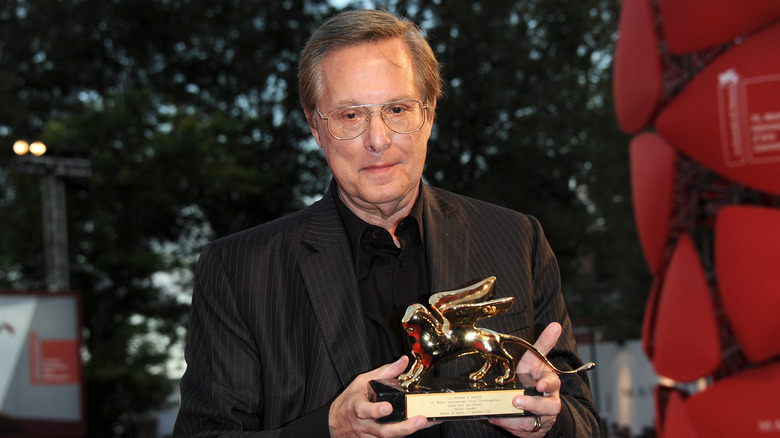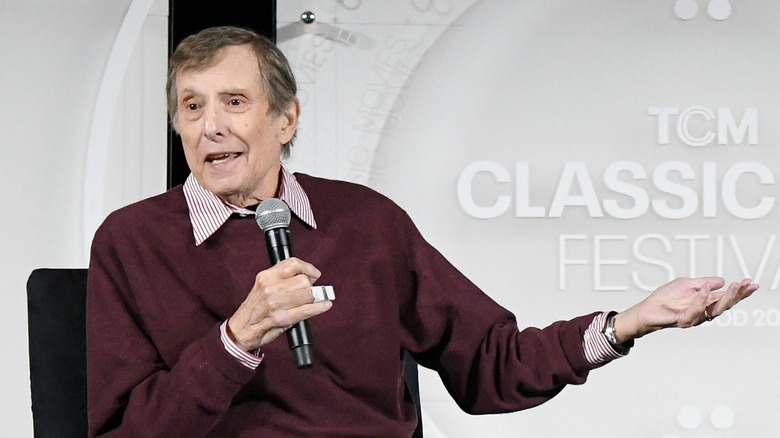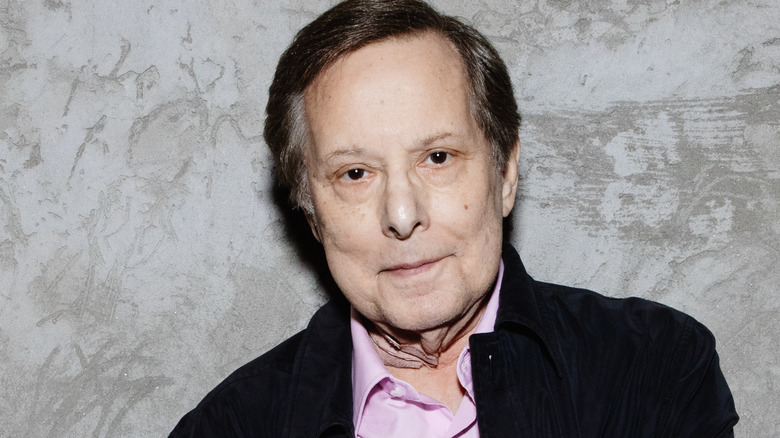The Exorcism That Changed Exorcist Director William Friedkin Forever
For writer and producer William Peter Blatty, "The Exorcist" was an apostolic effort, an expression of his own Catholic faith through fiction. Director William Friedkin did not come to the film adaptation with such religious convictions. Raised Jewish, Friedkin identified as agnostic, which by his definition — given to The Wrap in 2015 — meant accepting the unknowable nature of God. He professed an attachment to the teachings of Jesus Christ and other prophetic figures while eschewing the concept of organized religion. In discussions with Blatty during production of "The Exorcist," Friedkin accepted the story as one concerning the mystery of faith, but he wasn't interested in preaching through it the way Blatty was, leading to tensions between the two over the theatrical cut of the film.
Friedkin may never have accepted Catholicism or any organized faith, but researching and making "The Exorcist" made him a believer in demonic possession. He interviewed people involved with the 1949 case that inspired Blatty to write the novel, read the notes and diaries of the priests and medical staff connected with the case, and consulted with working priests as technical advisors. Friedkin's belief in the phenomenon could take him to strange places — he told Post Mortem that the movie "Downfall" reinforced his theory that Adolph Hitler was a target of possession. And it finally led him to a life-changing encounter with real exorcisms in the documentary "The Devil and Father Amorth," one of Friedkin's last films before his death on August 7, 2023.
William Friedkin saw a purportedly authentic exorcism in 2016
William Friedkin knew about Gabriele Amorth, a priest of the Society of Saint Paul, well before he met him. Ordained in 1954 after fighting in the Italian resistance during World War II, Amorth garnered a reputation as an exorcist in his native Italy in the 1980s. He claimed to have conducted thousands of them and even founded the International Association of Exorcists in 1990 (per The Conversation). His attitude toward the use of exorcism was broader than official church policy, though he admitted that most people who sought his help would be better off with psychiatry. Amorth also sometimes made outrageous claims in public; by his reckoning, yoga and "Harry Potter" were both paths to evil forces. But he also professed a sincere desire to help people.
Friedkin was skeptical about Amorth's reputation while filming "The Exorcist." But in 2016, while accepting an award in Italy, he put in a request to talk with the real-life exorcist. Amorth, a fan of Friedkin's film, accepted. When Friedkin brought this story back to Hollywood, he found himself granted space in Vanity Fair to write — not just about Amorth but a real exorcism that the priest reluctantly allowed Friedkin to attend and film. A woman, dubbed Rosa in the article, screamed, cursed in strange voices, passed out, and thrashed as Amorth performed his ninth exorcism on her (exorcisms, believers say, often take more than one session to be successful).
The director was left with an 'inner sadness' from seeing the exorcism
Per his Vanity Fair article, William Friedkin took his footage of Father Amorth's exorcism to neurologists and psychiatrists. None of them became converts, but all were impressed by the footage and at a loss to readily explain it, though one psychiatrist noted that it fit the pattern of dissociative trance disorder. Friedkin was ready to film another exorcism on Rosa — her tenth — when she abruptly canceled. Later, Friedkin claimed, Rosa and her family threatened to sue or even kill him to keep the footage from being shown.
While disturbed by the threats, Friedkin would ultimately show the footage as part of "The Devil and Father Amorth," released in 2017. By then, Father Amorth was dead at 91, and Friedkin called the film a tribute (per IndieWire). Reviews were generally dismissive. Ignatiy Vishnevetsky of AV Club called it "trashy," and Matt Zoller Seitz of RogerEbert.com doubted both Rosa's claimed possession (she goes by Christina in the film) and the merits of the documentary. And despite Friedkin's claims to the contrary in Vulture, comparing a clip of the exorcism from the film with audio published by Vanity Fair suggests some post-production trickery was used.
But Friedkin insisted that what he filmed was genuine and personally affecting. "Ultimately, it went from fear in me to empathy, complete empathy," he told Vulture, "and how it's changed me is I've had a much deeper inner sadness ever since I saw that."


